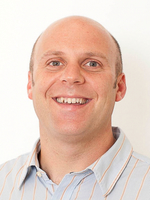Details
5-day course
CPD Credit: 25 hours; Competence/s: 1 & 2
Course Delivery Options
Overview
This programme focuses particularly on the recommendations set out in NSAI SR54 “Code of Practice – Methodology for the Energy Efficient Retrofit of Existing Dwellings” and is divided into 5 distinct modules. The modules will cover topics including; Near Zero Energy Buildings, Basic Building Physics, Building Fabric, Building Services and Renewable Energy.
Programme Aim
The aim of this programme is to develop a technical understanding of the issues relating to the energy-efficient retrofit of dwellings. The programme will focus on retrofitting the building fabric and services systems while providing some underpinning principles of building physics.
Programme Learning Objectives
- Develop an understanding of the issues around energy, building regulations and certification schemes in relation to dwellings
- Understand the processes relating to the thermal properties and heat loss mechanisms pertaining to dwellings
- Appraise the building envelope and recommend potential retrofitting solutions
- Understand space heating, water heating and ventilation systems and their impact on energy performance.
- Differentiate between a range of thermal and electrical energy generation solutions suitable for retrofitting into dwellings
Programme Structure and Delivery
Note: There may be an opportunity to undertake separate modules however it is strongly advised that the entire programme is undertaken as all modules delivered are considered essential components of Energy Efficiency. For further information on individual modules, please contact the CPD Training Team.
Individual Module Learning Objectives
Module 1 - Near Zero Energy Building
At the end of this module delegates should be able to:
- Appraise principles of NZEB design and construction of dwellings
- Differentiate between different Energy Certifications Schemes
- Devise retrofitting solutions that comply with the Building Regulations Part L & Part F
- Interpret information provided in low energy retrofit case studies
Module 2 - Basic Building Physics relating to heat loss and storage
At the end of this module delegates should be able to:
- Explain the different heat transfer processes as they apply to the building envelope
- Calculate the U-Values of building envelope elements
- Identify thermal bridging problems and propose potential retrofitting solutions
- Identify air permeability problems and propose potential retrofitting solutions
- Describe problems associated with condensation in dwellings
Module 3 - Building Fabric
At the end of this module delegates should be able to:
- Appraise the building envelope and its role as the primary climatic modifier
- Differentiate between potential construction details suitable for retrofitting
- Compare potential insulation retrofitting options for dwellings
- Examine a range of insulation materials suitable for retrofitting dwellings
- Interpret the effect of different insulation retrofitting solutions on the building envelope properties in terms of; thermal mass, air permeability and interstitial condensation
- Examine the best practice retrofitting treatment for each building envelope element
- Discuss thermal bridging in terms of its consequences and prediction of the heat loss associated with thermal bridging
- Differentiate between the products associated with; airtightness, vapour control & wind tightness
- Develop solutions for the retrofitting of windows in dwellings
Module 4 - Building Services; mechanical systems in buildings
At the end of this module delegates should be able to:
- Describe the processes of ventilation in dwellings
- Distinguish between ventilation and airtightness
- Solve a range of ventilation problems using psychrometric charts
- Appraise natural and mechanical technical solutions for retrofitting ventilation in dwellings
- Differentiate between different space heating solutions for dwellings
- Examine heat generation methods and potential retrofitting solutions
- Identify domestic water heating technologies and potential retrofitting solutions
- Describe controls associated with space heating and water heating systems
Module 5 - Renewable Energy, thermal and electricity generation
At the end of this module delegates should be able to:
- Differentiate between a range of thermal energy generation solutions suitable for retrofitting into dwellings, particularly; heat pumps, solar thermal, small scale CHP, biomass
- Examine the feasibility of thermal energy generation solutions in terms of energy and cost
- Differentiate between a range of electrical energy generation solutions suitable for retrofitting into dwellings, particularly; solar PV, wind turbines, small scale CHP
- Examine the feasibility of electrical energy generation solutions in terms of energy and cost
Who Should Attend?
Engineers or professionals who wish to improve their expertise in the area of energy retrofitting of dwellings should attend this comprehensive programme which is fully aligned with NSAI SR54 “Code of Practice – Methodology for the Energy Efficient Retrofit of Existing Dwellings.
Trainer Profiles
Mervin Doyle BEng (Hons) MPhil CEng MIEI

Lecturer, Waterford Institute of Technology
Mervin is a lecturer in the School of Engineering at Waterford Institute of Technology since 2002 and is programme leader of the MSc in Sustainable Energy Engineering at WIT. He holds a research Masters Degree from Dublin Institute of Technology and a BEng (Hons) in Environmental Services Engineering from Heriot-Watt University, Edinburgh. Mervin lectures on a range of topics, including; low energy building design, energy performance of buildings and dynamic thermal simulation. Mervin’s main research interests lie in dynamic thermal modelling of building energy performance.
Mervin is a Chartered Engineer with the Institution of Engineers of Ireland.
Colm Tynan BSc Eng (Hons), MSc Eng CEM MEI

Lecturer, Waterford Institute of Technology
Colm is an experienced engineer with over 20 years of lecturing and programme management knowledge in the education sector. He is currently programme leader of the BEng (Hons) in Sustainable Energy Engineering and the BEng in Fire Engineering courses at Waterford Institute of Technology. He lectures on a range of topics including Energy Performance of Buildings, Low Energy Building Design, Building Services Systems and Air Conditioning Design. He holds an MSc in Fire Safety Engineering from the University of Ulster and a BSc Eng (Hons) in Building Services Engineering from Dublin Institute of Technology. He is also a Certified Energy Manager and a member of the Energy Institute.

Engineers Ireland supports the Sustainable Development Goals. This event contributes to Engineers Ireland's Sustainability Framework.
Please contact the CPD Training Team for further information on scheduled course dates and In-Company options.